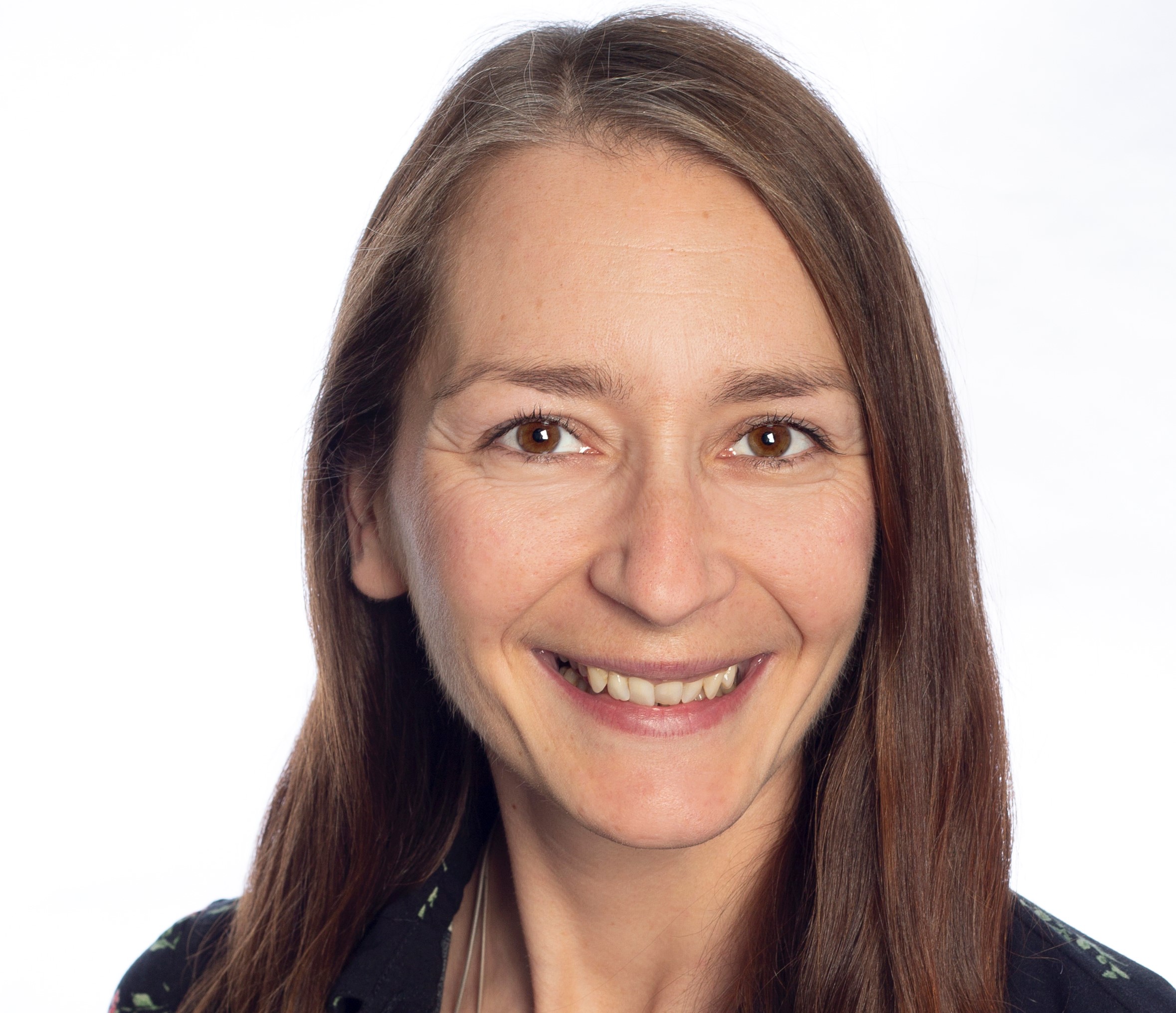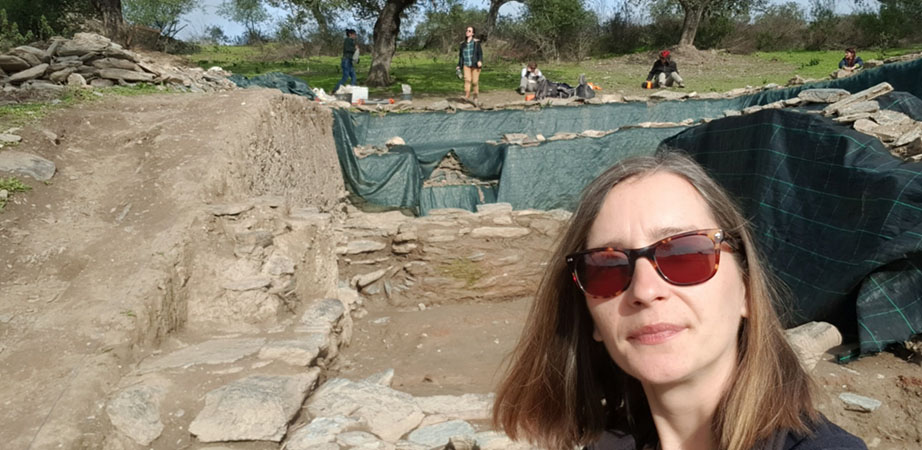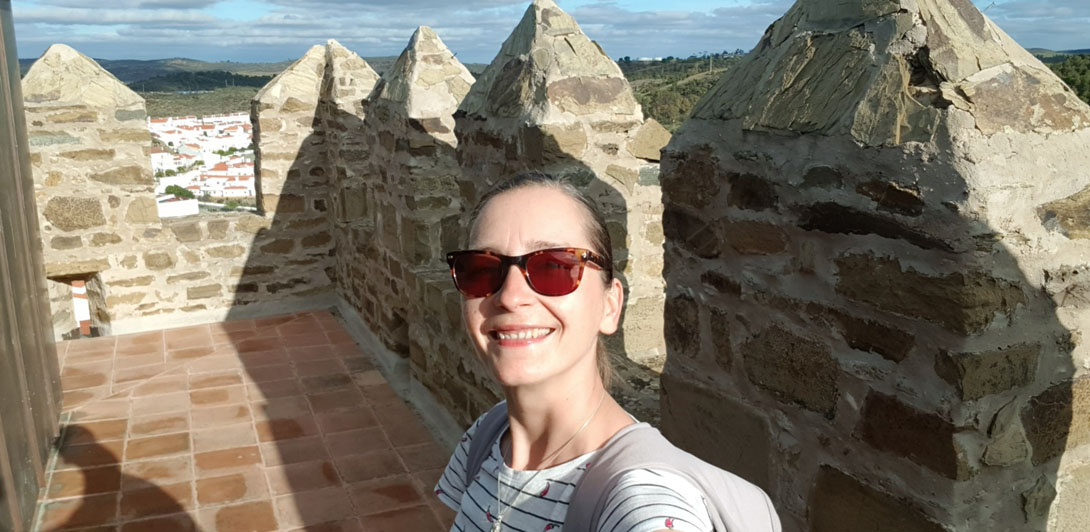
“Flinders had the perfect way to marry all of my space archaeology interests and passions into one degree, and it’s just been a brilliant journey so far. I wouldn’t have had this opportunity at any other place in the world. They’ve been instrumental in me becoming a space archaeologist.”
This story of Serbian-born Jelena Fabri, moving to Australia and pursuing a career in space archaeology, is inspirational and needs to be told. Read on to learn about how she shaped her future with the help of the Bachelor of Archaeology and by undertaking her Honours (and maybe even her PhD!).
Jelena’s passion for space archaeology started at a young age
Jelena Fabri was born in Novi Sad, Serbia. Throughout her upbringing in Serbia, Jelena Fabri was surrounded by archaeology and archaeological sites, some of which date back as far as the Roman Period and even older Neolithic era sites.
Archaeology was everywhere, including in her home where her mother had a home library full of books relating to different human cultures and societies, rituals and beliefs, natural world encyclopedias – and sci-fi novels and books about human space exploration and the cosmos.
Time passed, and Jelena eventually moved to Australia where she initially studied a Bachelor of Science and Astronomy, but knew her future was in space archaeology, and learning about how humans do things and interact with objects.
This led to her successfully applying for and undertaking the Bachelor of Archaeology at Flinders University, the only recognised archaeology degree in South Australia.
Onwards and upwards with the Bachelor of Archaeology
Jelena spent her three years in the degree learning about a lot of broad concepts which helped to expand her horizons for what archaeology really is.
“During the Bachelor of Archaeology, you can tailor the topics that you choose into a few different streams. They have really great teaching teams behind them and deliver real experiences in their field, for example, in maritime and indigenous archaeology. There are also topics pertaining to contemporary archaeology streams which cover more recent past that is still in our living memories.
“It’s really hard to understand our present if we don’t understand the past, and I think that archaeology is a great way to look into the future. You can see where you have come from and, therefore, you can plan the journey forward. You really start to appreciate where we are at the moment.”

Adding in extracurricular programs and activities
Jelena partook in the New Colombo Plan in 2019, which she said was an amazing experience that she believes every student should at least look into.
“It definitely broadened my horizons. It was great to go overseas and do independent research. I of course had supervisors, but it was in our own hands to shape and make the project happen. It was a beautiful experience to go and immerse myself in a different culture.
“I kept expanding the list of places I had been, including Serbia, Malaysia and Portugal, and jumped between universities, such as Flinders University, the University of South Australia, the International Space University, and the University of Malaya, collecting pins and badges along the way. All these different places have different teaching styles and communities, and this diversity was really beneficial to me.”
Jelena says she owes some of her personal and professional development to the Horizon program, in which she learnt skills that do not necessarily just transfer into her work life, but also into her day-to-day life.
“Horizon is a brilliant initiative. I have learnt some really great things through the program and it’s great to have on your CV. You spend your personal time helping yourself grow in a way that regular topics don’t necessarily provide. Plus, you gain loads of transferable skills.
“Horizon taught me for instance about conflict resolution, and I’ve found that to be really useful in my personal life, too. It’s not all about professional development, but rather just development in general and it lets you attach what you learn to your studies during uni.”
Honing her space archaeology skills with a scholarship
Jelena also undertook the Southern Hemisphere Space Studies Program with the International Space University. Run in partnership with UniSA and in person at the Mawson Lakes campus (but sadly run online for Jelena, due to COVID), this five-week-long intensive gives students a major team project to work on with real-world implications.
“I heard about it through some of my friends who were also archaeologists interested in space. I didn’t think that I would be able to afford it, but I was lucky to win a scholarship from the SA Government and SASIC, through the Andy Thomas Space Foundation. The scholarship was based on motivation, whether they thought I was going to make an impact on the local space industry, but also financial needs, and of course merit.
“I met all these amazing people who were switched on, innovative, and creative individuals from around Australia, and also other parts of the world. Since the program’s end, a few people have even moved to Adelaide because there are so many great space jobs here. The cohort every year is fairly small, there were roughly 36 of us, so it was a real honour to be a part of it.
“You get given a problem, and then the team project gets broken down into different sections based on inter-disciplinary preferences, skills and backgrounds like science, humanities, policy, law and ethics, human performance, health, and even business and management.
“The outcome was a final report and an executive summary, which is going to be published as a hard copy very soon. It is also going to be presented at the Australia Space Research Conference in Sydney.”
Starting an Honours in space archaeology
Jelena was very keen to do space archaeology for her Honours project, and a conversation with Dr Alice Gorman, a champion of space archaeology here at Flinders, put her dream in motion.
“I’ve always been fascinated with human habitation in space, and we have limited examples of that, such as on the International Space Station. Dr Alice Gorman at Flinders and Dr Justin Walsh at Chapman University in California created the International Space Station Archaeological Project and I happily jumped on board.
“When the time came to do Honours, Dr Gorman had a spot and I put my hand up. We previously talked about us doing something together as she was aware of my background and of my space knowledge and interest. Even though I was working towards space one way or another, if it hadn’t been for everything falling into place at the right time, it probably wouldn’t have happened. I wanted to better prepare myself for potentially doing a PhD, and that seemed like a good pathway.
“Archaeology is such a broad field and at Flinders, you really start from a broad perspective that lets you find something you are really interested in and apply an archaeological lens to it. If you can explore human interaction with space, for instance, you can do anything. If you want to look at the evolution of toothbrushes you can do that, it’s just so broad and that’s what makes it so fun.”
Jelena’s Honours project is focused on the way in which astronauts and cosmonauts interact with the material culture related to food on the ISS, how they adapt their eating habits to microgravity, and how food can be used as a means of creating social and cultural connections.
“A lot of studies have been done by NASA that focused on nutrition, health, and diet of the astronauts, but none of these looked at the social & cultural aspects of food, such as what role food plays in the cultural identity of an astronaut, or what the food does for morale and social cohesion of the crews. How can it be utilised to keep them connected amongst each other, as well as to their homes back on Earth? Food is a major part of our cultural and social lives, it is way more than just a bunch of vitamins, minerals, proteins, and carbs.
“I’m hoping to produce research that will be useful for future missions, as opposed to being just research for research’s sake. It would also be good if other people could use this as inspiration for their own research and continue the conversation.”

Working in industry
Jelena is currently working at the Australian Space Discovery Centre as a Space Communicator, sharing her knowledge, experience, and passion for space with the general public, as well as trying to inspire young people to join the growing Australian space industry.
“I was ready and wanted to spread the good word of what space does for our lives here on Earth and how we benefit from it every day – and how we can, and will, benefit from it in the future and inspire others to move into that area. It is an exciting time to get involved.
“Not everyone is an astronaut, astronauts are just a small percentage of people that are involved in the space industry. Not everyone is a rocket scientist either. We need businesspeople, managers, and professionals who can deal with funding, creative industries, and making dreams a reality. We even need photographers and game developers.
“We have a running joke that if you put the word space before any occupation, not only have you created an all-new occupation altogether, but more often than not that is a job that already exists, or it will exist in the near future.”
The world (and space) is Jelena’s oyster
Her journey leading up to where she is now, with her undergraduate studies behind her, Jelena is chasing her dream of becoming a trailblazer in the field of space archaeology.
“Space archaeology is not offered at Flinders as a standalone stream. At the moment, no specific topics exist that focus solely on space archaeology, but I can see the potential and need for that in the future. I definitely had all the support I needed to pursue space archaeology as an interest and combine different things with each other. It all worked out for me. I hope for future students that want to go down this path that there will be even more options soon.
“I come from a low socio-economic background, from a fairly small country, and I’m a woman, which means that there have been a lot of things that could have prevented me from getting a university degree, or really pushing forward with my interests and passions. It’s important to show other young people that even the sky isn’t the limit anymore. You need to push and chase your dreams, create your career, especially if it doesn’t exist yet.”
If you, too, have a passion to broaden your horizons, why not give the Bachelor of Archaeology a go and see what it can do for you? Apply now!
Author: Jordan Marsden

